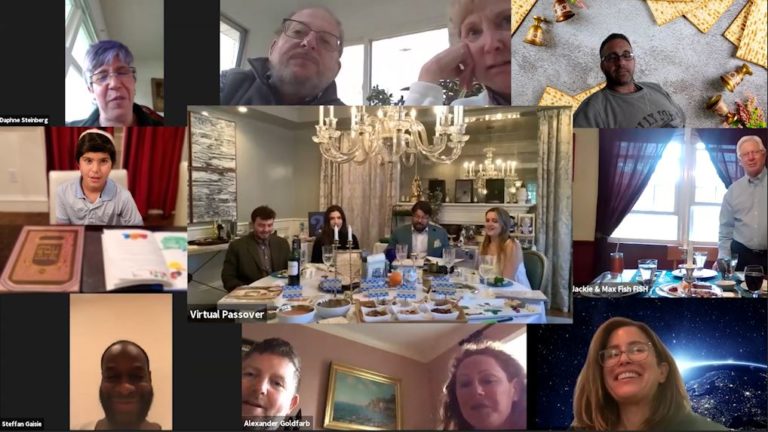Can you believe that this year the average age of the singer of the Four Questions at the Passover Seder was as high as 60 years old?
During 2020, the Seder ritual of singing the Four Questions made Jewish History! Each year at the Seder, the youngest person present at the table sings the Four Questions. Throughout Jewish history Seders are overwhelming intergenerational affairs. The youngest person present tends to be a child, with the average singer’s age around 8 or 9 years old. Due to the social distancing measures employed during the spring of 2020, families were not able to gather together in person for the Passover Seder. This meant that at many tables the youngest person present was in their 60s, 70s, 80s or 90s.
We at Breaking Matzo reached out to the Jewish community around the world, asking people of all ages to send us videos of them singing the Four Questions. People answered the call, a diverse array of participants from around the world shared this unprecedented Passover with us. It was a truly touching gesture of solidarity and community, a blessing of light in dark times.
We weaved these poignant moments together into the first intergenerational four questions musical montage in history! It shows that even in times of isolation we are together, strong, and joyful.
You can watch this magical singing of the Four Questions here:
Additional Reading:
The Four Questions are a unique and important part of the Passover Seder. A major portion of the Seder is the retelling of the Passover story known as the Magid. The Fours Questions are asked at the beginning of the Maggid, serving as a narrative framing device for the story to come. The questions are about how the rituals and practices employed during the Passover Seder set that night apart from all others. Each of the answers highlight aspects of the story and why it must be recounted each year. You can watch our virtual Seder here.
Throughout the centuries there have been changes to the Four Questions, originally there were only three. There is some debate as to the proper order of the Four Questions. They can be spoken, but they are usually sung.
The first question asks: On all other night we eat leavened foods and matzo, why on this night do we only eat matzo? The Matzo eaten during Passover is a reminder that the Jews fleeing slavery in Egypt had to leave so quickly that they could not wait for their bread to rise. You can read more about the importance of matzo here.
The second question asks: On all other nights we eat all sorts of vegetables, why on this night do we only eat bitter herbs? The eating of bitter herbs represents the bitterness of the lives of the Jewish slaves in Egypt.
The third question asks: On all other nights we don’t dip our foods even once, why on this night do we dip twice? Dipping foods is considered a luxury, something that slaves would not have been able to do. Dipping parsley into saltwater symbolizes the tears of our ancestors being eased with the promise of spring and new life. Dipping bitter herb into charoset symbolizes the bitterness of slavery being wiped out by the sweetness of hard work as a free peoples. You can learn more about charoset here.
The fourth question asks: On all other nights we eat sitting upright or reclining, why on this night do we only recline? Eating in a reclined position is a symbol of freedom and prosperity, a celebration of how far the Jews have come since their hardships in Egypt.






